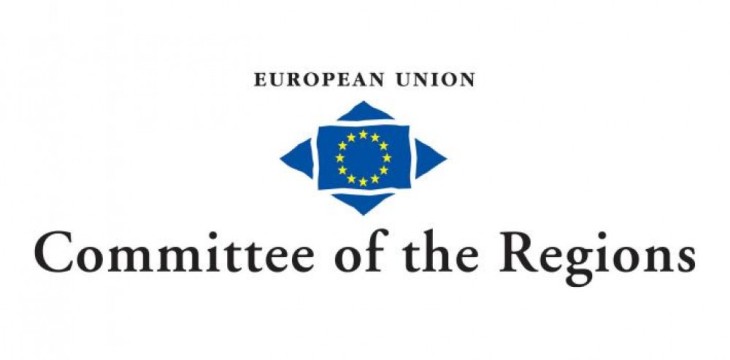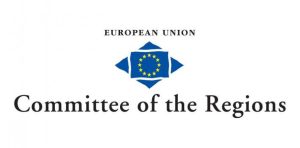The main conclusions of the CoR plenary session: further work on the simplification of the cohesion policy, new and more consistent regional statistics and new development indicators – beyond GDP

After the 16th Committee of Regions (CoR) plenary session, held on 10-11 February 2016, the main message delivered by the President of the European Council, Donald Tusk and CoR President, Markku Markkula, highlighted free movement as the foundation of European liberties and called for strengthening Europe’s external borders. The latest plenary session brought important conclusions, among others, on the simplification of the cohesion policy, availability and updated version of regional data, new and more consistent regional statistics, introduction of a comprehensive Regional Progress Indicator, new development indicators – beyond GDP, treatment of long-term unemployment, rural economy, cooperation in the youth field. During the session, views were exchanged with the President of the European Council, Donald Tusk and Commissioners Corina Creţu and Tibor Navracsics.
President Tusk: “Schengen must be defended and external borders strengthened”
The President of the European Council, Donald Tusk, who describes himself as “a long-time advocate of regionalism as an antidote to nationalism and separatism“, said that “the next six weeks will be key for the future of the European Union and the role of our cities, local communities and regions will be pivotal in confronting the challenges EU faces. These are the places where things get done and we need to fully reflect this in how we structure our political conversations and how we manage crises”.
The President of the European Committee of the Regions, Markku Markkula stressed that “we need political leadership based on delivery and tangible results on the ground. We need a proactive Europe to respond to our citizens’ and communities’ priorities – closing down borders and erecting walls are not the answers.”
The members of the Committee of the Regions issued a cross-party resolution urging the EU’s national leaders to protect freedom of movement in the 26 European countries that make up the Schengen zone of border-free travel. The resolution argues that re-installing national border checks will not solve the underlying problem of mass movements of refugees and economic migrants into Europe, and will instead add to the costs faced by fragile economies.
The CoR supports the priorities of Dutch EU Presidency
Ronald Plasterk, Dutch Minister of Interior and Kingdom Relations, presented the programme of the Dutch Presidency, its priorities and fields of cooperation, including a new urban agenda, better regulation and boosting investment. CoR pointed out its efforts related to the EU Urban Agenda.
Local leaders discuss cohesion policy with Commissioner Creţu
The Commissioner on Regional Policy, Corinna Creţu and local leaders exchanged views on how to deliver better and accelerate the European Structural and Investment Funds (ESIF).
“EU regional policy is an investment tool, not a subsidy, and only by working together, cutting red tape and simplifying rules can we make them more effective. Lack of coordination between European institutions, national governments, regions and cities and the complexity of rules is still diluting its impact. This needs to change if cohesion policy is to deliver growth and bottom-up innovation” said the CoR’s President Markku Markkula.
Speaking during the debate at the CoRs’ plenary, Commissioner Creţu stated: “Dialogue with regional and local leaders is of utmost importance today as Europe is going through one of the most difficult crises of its history. Cohesion policy could be part of the answer since it is the only EU policy whose functioning is based on a real partnership with Member States and regional and local authorities. This year will be devoted to implementing the policy and translating our ambitious objectives into high-quality projects. The work of the CoR will be crucial to engage regional and local actors in the debate regarding the future of our policy.”
During the plenary, the CoR adopted its position on measuring regional wellbeing and called for new indicators to be introduced, alongside GDP, for allocating structural funds.
More indicators apart from GDP are needed in order to better identify priorities
An opinion approved by the European Committee of the Regions supports that EU funds should be allocated using environmental, social and other indicators together with GDP. Regions and cities call for the EU to improve its development indicators, in order to better direct funds where they are needed most, on clearly identified priorities.
Rapporteur Catiuscia Marini, Chair of the PES Group in the CoR and President of the Umbria Region in Italy said that “if we want the next EU budget to be more efficient and results-oriented, we need better criteria to assess the needs of territories and to measure strategic progress”.
Environmental quality, social inclusion, employment and education opportunities should complement the GDP as the main indicators used to define the priorities for the next generation of investment plans funded by the EU cohesion policy.
Regions and cities also requested to be involved in defining such indicators as well as in setting the EU’s policy targets, so that policies are measured and implemented in a way that mirrors the actual needs of EU citizens and businesses.
To ensure the adequate involvement of regional and local authorities, the Committee requested the European Commission to come forward with a road-map on the “GDP and beyond”.
In addition, local leaders called on the EU to make sure that regional data are made available and regularly updated. To fill the current information gaps and to deliver new and more consistent regional statistics, the Committee therefore proposed the introduction of a comprehensive Regional Progress Indicator.
Local authorities call for access to reliable data on the fisheries sector
One of the topic on the CoR plenary session was the creation an EU framework for collecting, managing and using data in the fisheries sector, an important part of the establishment of a common fisheries policy at the regional level. In order to develop long-term policies and ensure efficient fisheries management, local and regional authorities must be able to draw on data and scientific advice. A holistic approach to fisheries will not upset the balance of the marine ecosystem and will prevent any irreversible consequences. The importance of socio-economic data in fisheries and aquaculture, which in the medium term could help to harmonise and improve social legislation in these sectors and provide new opportunities for jobs and growth in coastal areas.
The growing urban-rural gap has to be tackled by modernising rural areas, says the CoR
Rural population decline is a serious problem in Europe. Local authorities stressed in an opinion that funding needs to be channelled to rural areas in order to develop programmes that stimulate growth and create employment. The CoR highlighted the need to modernise rural areas and to tackle the growing urban-rural development gap.
Need for more excellence in education
Tibor Navracsics, Commissioner for Education, Culture, Youth and Sport, and CoR President Markku Markkula stressed the need to consider spending on youth policies as an investment in the future. Resources for youth employment, entrepreneurship and integration policies were some of the topics discussed. The CoR also approved an opinion that calls for a renewed educational policy that empowers social inclusion, innovation and excellence in European regions.
Increasing resources and cooperation for youth employment, entrepreneurship and integration policies should not be seen as expenditure but as investment in the future, the president of the European Committee of the Regions Markku Markkula emphasised. In a debate with Tibor Navracsics, Commissioner for Education, Culture, Youth and Sport, Europe’s local and regional leaders also called for a renewed education policy which promotes innovation and excellence in all regions of Europe. A New Skills Agenda for Europe, expected in May 2016, will focus on the renewed efforts to modernise European education systems, to achieve excellence and stimulate innovation in education and training.
Commissioner Navracsics said: “Europe suffers from underinvestment in education. We must reverse this trend, to make our economy more competitive and to give everyone a real chance in life. It is in regions and cities where we will need to tackle exclusion and radicalisation. And I want regional leaders, mayors, heads of local NGOs, schools and sport clubs to know that the EU cares and can support them in many ways”.
In its plenary session, the CoR adopted an opinion on the implementation of the renewed framework for European cooperation in the youth field. It calls for more accessible information on the results of youth policy, “including data on sub-national level, so as to better determine the gaps in which the EU might help through its structural funds, especially in sparsely populated rural areas”, says rapporteur Csaba Borboly (RO/EPP). The President of Harghita County Council regrets that budgetary cuts in several Member States have affected socio-educational services at a critical moment. “With the current, unprecedented migration flows to Europe, these issues are even more relevant. Local and regional authorities should be provided with adequate, directly accessible financial resources to allow the integration of young people from migrant backgrounds”, Mr Borboly stresses.
In the field of education, the opinion suggests a “minimum qualifications and skills guarantee” for all young people in Europe, as well as a basic package including access to high speed internet, language learning, career guidance and mentoring, funding opportunities for studies and promoting the right to a first job. It also highlights the importance of matching skills with employers’ needs and promoting professional training initiatives, tailored to regional specificities and specific skills.
Long-term unemployment, a fight that must be addressed by EU and regional authorities
Local and regional leaders emphasised the need to take action at the European level in order to re-integrate unemployed people into the labour market. The opinion backed policies to strengthen demand for labour and suggested that European funding could be used to support employment services in countries worst hit by the recession.
Senior tourism, a growing reality and an economic potential for European regions
The European Committee of the Regions underscored in an opinion the important economic role that tourism by pensioners can play in promoting and developing out-of-season tourism, noting the growth of this segment of the population in recent decades. The CoR believes that regions play a key role in capitalising on the potential that this demographic reality has created for the tourism industry.





